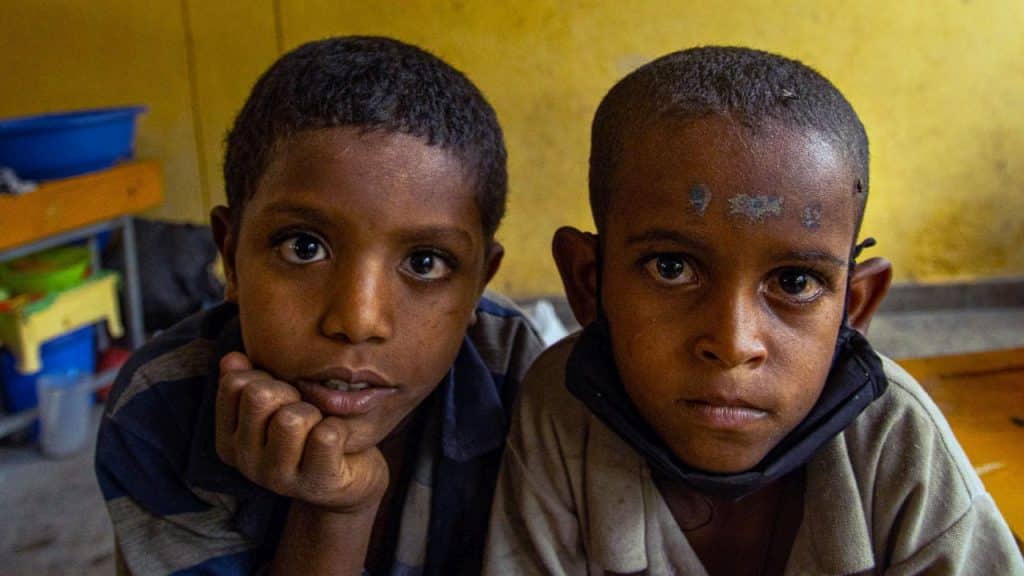Since the beginning of the civil war in Ethiopia, the African Union has tried to get both the central government and the Tigra separatists to start peace negotiations. Initially, both sides hoped for a military victory, so suggestions for a political solution to the dispute were strongly rejected. Recent months have brought, however, a deepening impasse, serving only the neighboring Eritrea, whose soldiers organized plundering expeditions to Tigray.
It became clear that another offensive and counteroffensive were meaningless and that the conflict had to be resolved through negotiation. On October 25, talks began in Pretoria, in which, in addition to the Ethiopian security advisor Redwan Hussein and the adviser to the president of Tigraj, Getachev Reda, the former president of Nigeria, Olusegun Obasanjo, is participating on behalf of the African Union. Former Kenyan President Uhuru Kenyatta and former South African Vice President Phumzile Mlambo-Ngcuka are also involved in the peace process.
South African president’s spokesman, Vincent Magwenya, said at a press conference that talks are scheduled until October 30. Their launch was welcomed by US Secretary of State Antony Blinken and UN Commissioner for Refugees Filippo Grandi. It cannot be under the illusion that the talks will bring lasting peace. It is possible to achieve a ceasefire, withdraw Eritreans from Tigray and give international organizations full access to the civilian population.
Due to the siege in #Tigray, Ethiopia, many people have died of starvation, man made famine & lack of access to essential health care in past 2 years. Many dying incl, Children due to daily carpet bombing by Eritrean and Ethiopian forces. We need peace & safe humanitarian access. pic.twitter.com/aEam1hjD01
– Tedros Adhanom Ghebreyesus (@DrTedros) October 25, 2022
The negotiations in Pretoria are the first official round of talks between the representatives of Ethiopia and Tigray. Earlier, there were unofficial contacts reported by US representatives. There were allegedly three meetings – once in the Seychelles and twice in Djibouti. However, Eritrea’s participation in the conflict remains a problem. The use of the forces of a neighboring country by Addis Ababa may prove to be the biggest obstacle in the negotiations. It remains an open question what influence the Ethiopian authorities have on the operational decisions of Asmara.
The political background of the peace negotiations
South Africa is a country which, especially for image reasons, is interested in a quick solution to the problem of the instability of Ethiopia. President Cyril Ramaphosa is desperately trying to gain a stronger position in the international arena, presenting himself as a neutral mediator in the Russian-Ukrainian conflict, and this in a symbolic take over the negotiations in Ethiopia.
Protests In London Against Genocide In Tigray
BREAKING: Hundreds of protesters demonstrated in London to demand an end to the ongoing genocide in the #Tigray region, almost two years after @ AbiyAhmedAli’s gov’t launched an offensive there that sparked a devastating conflict. pic.twitter.com/9HzwxczlIW
– Yonas Nigussie (@Yonigussie) October 26, 2022
The authorities in Pretoria have achieved political success. Negotiations will be conducted under the supervision of representatives of the African Union. From the organizational perspective, it is extremely important to highlight the role of the AU in signing a possible peace agreement. The civil war in Ethiopia is another conflict in which the powerlessness of pan-African structures has manifested itself.
While regional organizations have repeatedly shown that they are capable of influencing security policy, the AU has failed. One of the most obvious examples is the work of the Economic Community of West African States (ECOWAS), which has taken flexible measures, ranging from border blockades and economic sanctions (Mali) to the threat of direct military intervention (Gambia). The initiatives taken by the AU are a contrast to the proactive policy of ECOWAS. Her passivity and limiting herself to issuing political messages brings to mind the times of the Organization of African Unity, mockingly known as the Dictators’ Club.
An attempt to solve the problem of the civil war in Ethiopia was also made within the UN Security Council. The topic was raised by Kenya, Ghana and Gabon, three temporary members of the Council. However, the initiative was successfully blocked by representatives of Russia and China – countries enjoying excellent relations with the authorities in Addis Ababa. Beijing and Moscow also remain among the most important sources of foreign aid for Ethiopia, which, after the start of the war in Tigray, has to face partial ostracism on the part of the international community.
See also: US Marines practiced with the Hunter WOLF unmanned aerial vehicle
Yan Boechat, VOA

